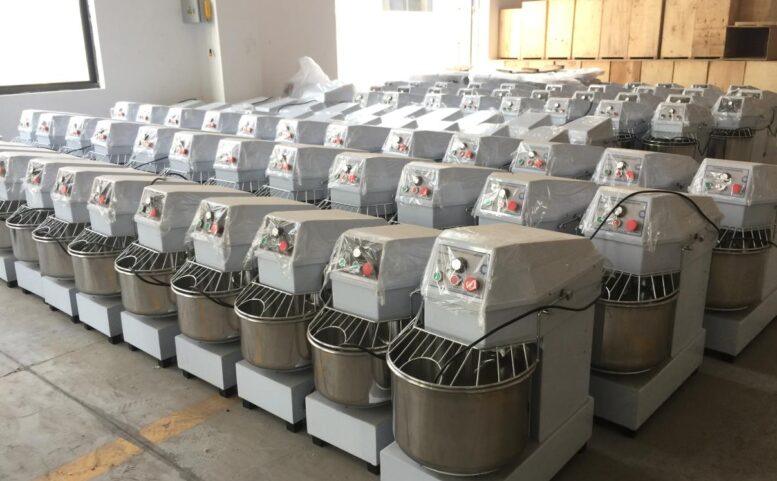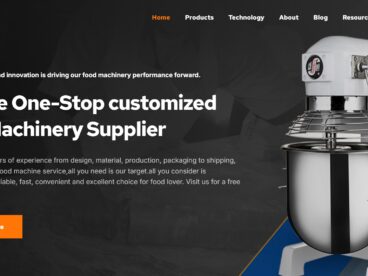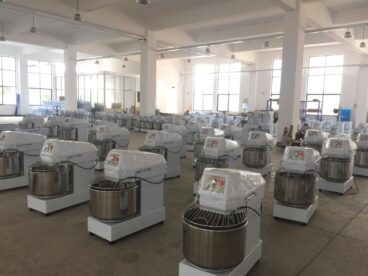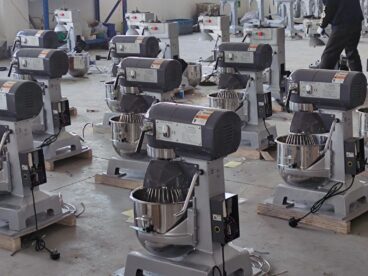Spiral mixers are essential equipment for bakeries, pizzerias, and other businesses that handle large volumes of dough. Choosing the right spiral mixer can impact efficiency, dough quality, and product consistency. This guide will walk you through all the factors to consider before making a purchase, ensuring you find the ideal mixer for your needs.
1. Understanding What a Spiral Mixer Is
A spiral mixer is designed specifically for mixing dough. Unlike other types of mixers, the bowl rotates while the spiral hook remains stationary or rotates at a slower speed. This unique mixing method prevents dough from overheating and ensures better gluten development, resulting in high-quality baked goods.
- How it works: The bowl’s rotating action helps achieve thorough mixing without tearing the dough.
- Key advantage: It is particularly effective for bread, pizza, and pastry dough, where the texture and rise depend heavily on proper mixing.
- Industries that use spiral mixers: Bakeries, restaurants, pizzerias, and confectioneries.
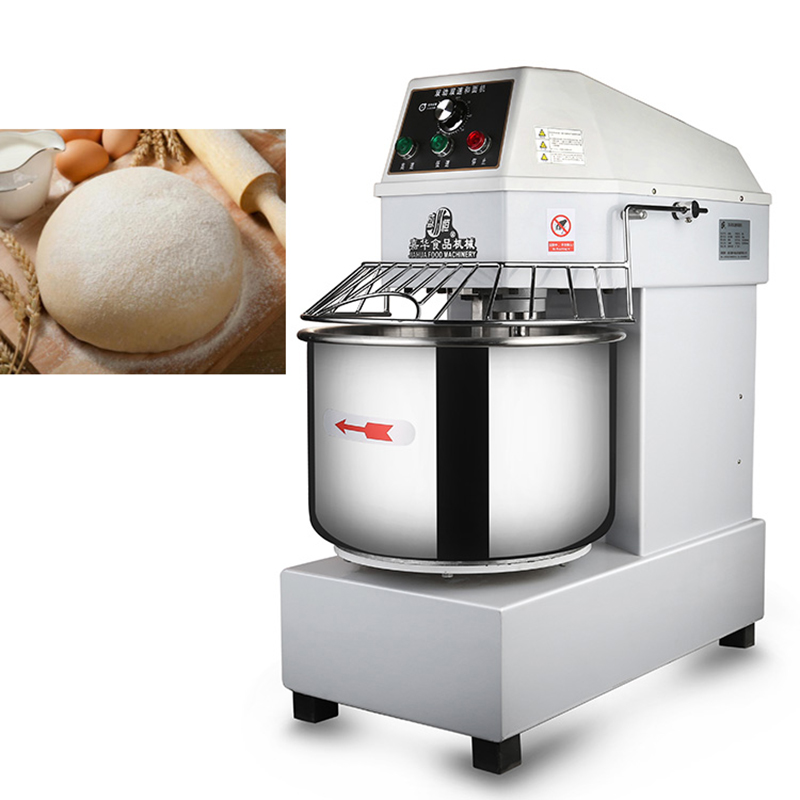
2. Capacity: How Much Dough Do You Need to Handle?
One of the most critical factors in choosing a spiral mixer is capacity. It’s important to choose a model that matches your production needs without under- or overburdening the machine.
- Small batches: If you’re handling up to 20 kg (44 lbs) of dough, a smaller spiral mixer is sufficient.
- Medium batches: For operations needing to mix between 20 and 80 kg (44–176 lbs), opt for mid-sized models.
- Large-scale production: If your business makes 100+ kg (220+ lbs) of dough daily, an industrial-sized mixer is essential.
Tip: Always calculate the volume of dough per batch to ensure the mixer can handle peak production times.
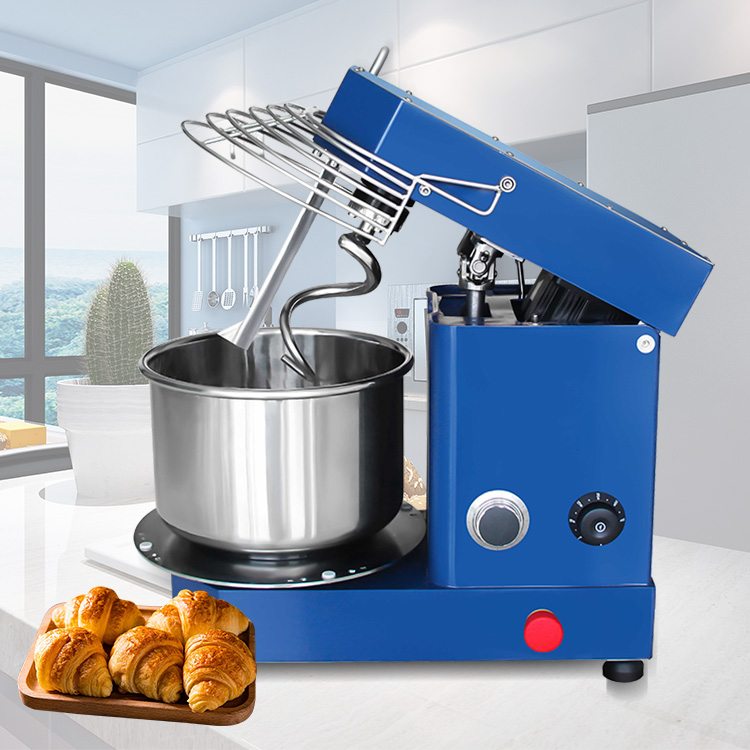
3. Motor Power and Speed Options
Motor strength and speed versatility affect the quality and consistency of the dough. Higher horsepower ensures the mixer can handle denser doughs, like whole wheat or rye.
- Single-speed vs. dual-speed mixers:
- Single-speed models are cost-effective but might struggle with different dough types.
- Dual-speed mixers offer flexibility, with one speed for initial mixing and another for kneading.
- Look for overload protection: This feature prevents motor burnout during heavy use.
4. Fixed Bowl vs. Removable Bowl
Spiral mixers come with either fixed or removable bowls. Each design offers specific advantages based on your workflow and production scale.
- Fixed bowl mixers:
- Ideal for high-volume production where batches are mixed continuously.
- Require manual emptying, which might slow down operations for smaller businesses.
- Removable bowl mixers:
- Easier to clean and manage when switching between recipes.
- Useful in smaller or mid-sized businesses that require flexibility.
Pro tip: If your operation involves frequent recipe changes, a removable bowl can save significant time and effort.
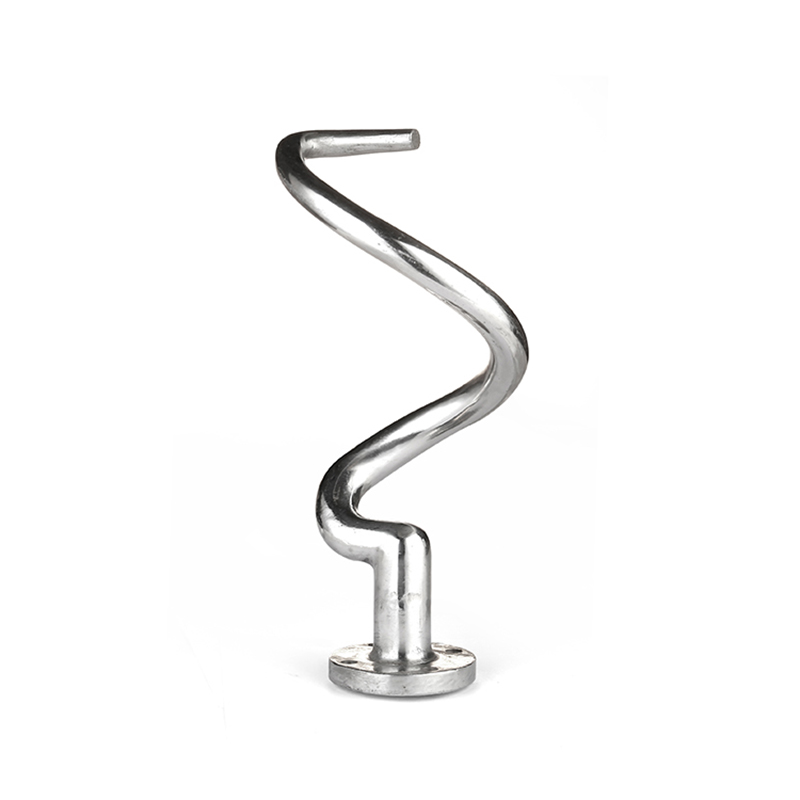
5. Material and Build Quality
The construction quality of a spiral mixer directly affects its durability and performance. Look for mixers made from stainless steel to ensure longevity and ease of maintenance.
- Stainless steel bowls: Resistant to corrosion and easy to clean.
- Heavy-duty frames: Help reduce vibrations during use and extend the machine’s life.
- Sealed motors and controls: Protect the internal components from flour, moisture, and dough residue.
6. Control Systems: Manual vs. Automatic
Spiral mixers can feature either manual or automated control systems. The right choice depends on your operational needs and production scale.
- Manual controls: Allow greater customization and are typically more affordable. However, they require more hands-on management.
- Automated timers and programs: These mixers can run pre-set programs, ideal for large-scale production where consistency is key.
7. Noise Level and Ergonomics
Working with heavy machinery like spiral mixers can generate noise, impacting the work environment. Ergonomics also play a role in preventing fatigue among operators.
- Look for low-noise motors to minimize workplace disturbance.
- Ergonomic designs with easy-to-reach controls and tilt functions enhance usability.
- Caster wheels on larger models offer mobility, allowing you to move the machine with ease.
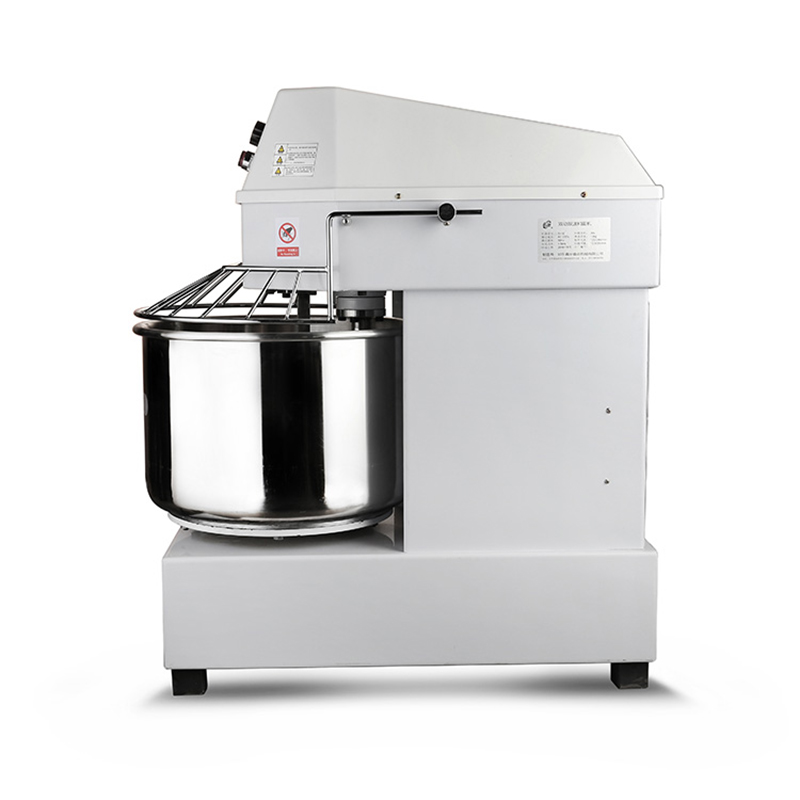
8. Space Considerations and Kitchen Layout
Spiral mixers can take up considerable space in your kitchen. Ensure you measure your workspace and plan the layout before purchasing.
- Compact models: Suitable for small bakeries or kitchens with limited space.
- Larger mixers: Require dedicated areas with enough clearance for loading, unloading, and cleaning.
Note: Pay attention to doorways and other access points to make sure the mixer fits into your kitchen easily.
9. Maintenance and Cleaning Requirements
Regular maintenance extends the life of your spiral mixer and ensures optimal performance. Some models are easier to maintain than others.
- Removable parts: Bowls and spiral hooks that detach are easier to clean.
- Lubrication points: Check if the motor and mechanical parts require regular greasing.
- Dishwasher-safe components: Some mixers come with parts that can be washed in a dishwasher, making cleanup more convenient.
10. Energy Efficiency and Sustainability
With rising energy costs, choosing an energy-efficient mixer can save you money in the long run. Some models feature energy-saving modes or eco-friendly designs.
- Low-energy motors: Reduce electricity consumption without sacrificing performance.
- Sustainable manufacturing practices: Look for brands that focus on environmentally friendly production.
11. Budget: Finding the Best Value for Your Money
Your budget will ultimately determine the type of mixer you can afford. However, it’s essential to balance cost with quality to avoid compromising on performance.
- Entry-level models: Affordable but may lack advanced features.
- Mid-range mixers: Offer good performance with useful features at a reasonable price.
- High-end machines: Provide superior durability and performance but come at a premium cost.
Tip: Look for sales, warranties, and financing options to make a high-quality purchase more affordable.
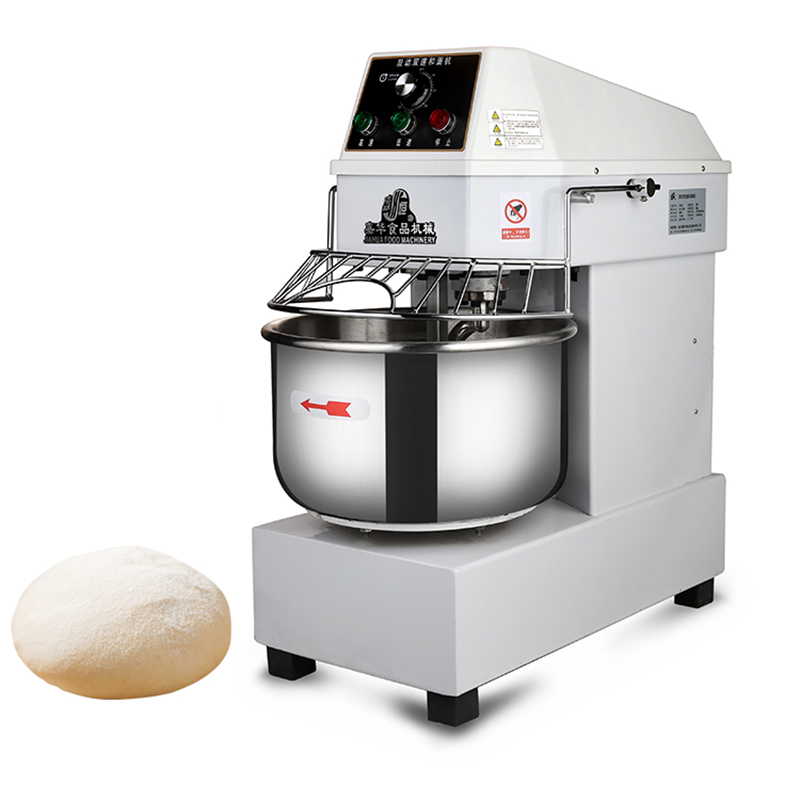
12. Choosing the Right Brand and Model
There are many brands on the market, each offering various features and benefits. Research reviews and seek recommendations to find reliable models.
- Popular brands: Consider well-established names known for their durability and performance.
- Customer reviews: Provide insight into real-world performance and potential issues.
- After-sales support: Look for manufacturers that offer technical support and spare parts.
13. Warranty and Customer Support
A good warranty ensures peace of mind and protects your investment. Ensure the manufacturer provides responsive customer service and easy access to spare parts.
- Standard warranty terms: Many mixers come with one to three years of coverage.
- Extended warranties: Some brands offer additional protection for an extra cost.
- Local service centers: Make sure there is service support in your region.
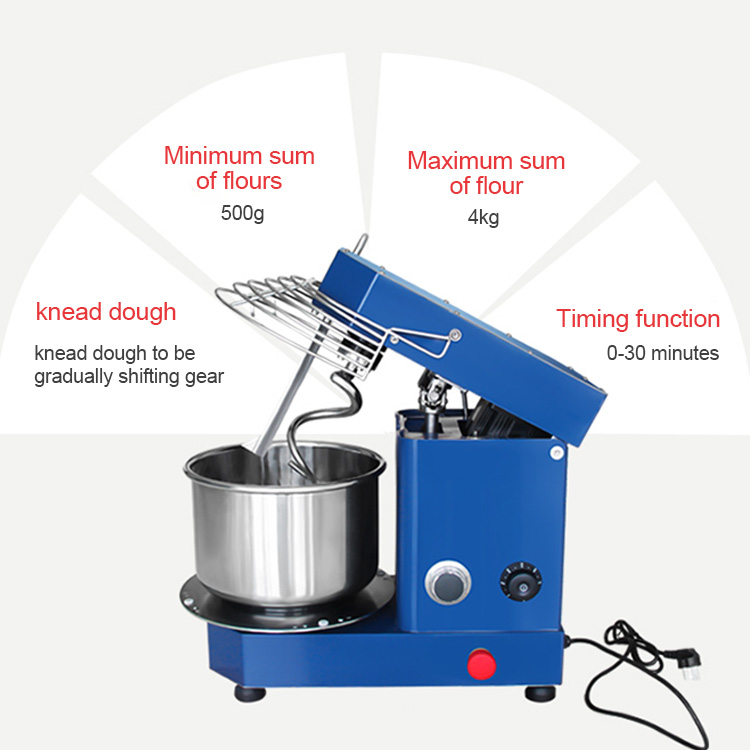
14. Conclusion: Making the Right Choice for Your Business
Choosing the right spiral mixer involves evaluating your business’s specific needs, including dough volume, space, and budget. By focusing on essential features like motor power, capacity, and ease of maintenance, you can select a mixer that enhances your production process and ensures consistent results.
DONGQING, 20+ years of experience from design, material, production, packaging to shipping, provide customized food machine service,all you need is our target.all you consider is our future.Secure, reliable, fast, convenient and excellent choice for food lover. DONGQING has a dough for every baker,from the SH10 for small-batch baking to the SH100 for high-volume tasks.All DONGQING mixers are built to last and come with a warranty. To learn more, visit DONGQING today and shop for the perfect spiral mixer.Welcome to contact us,Visit us for a free quote!


